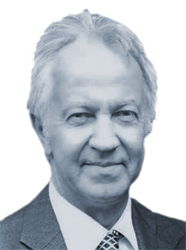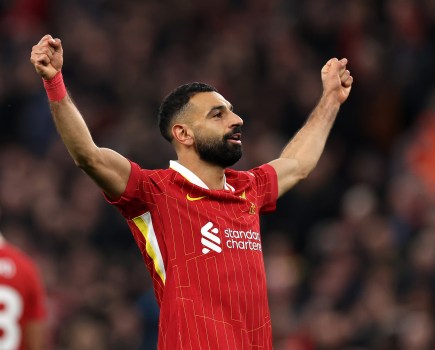 Wednesday, June 1, 2011, could be a historic day for FIFA as the 208 officially recognised, paid-up nation members of world football’s governing body choose a new president…and he could be the first Asian to break the European/Brazilian axis.
Wednesday, June 1, 2011, could be a historic day for FIFA as the 208 officially recognised, paid-up nation members of world football’s governing body choose a new president…and he could be the first Asian to break the European/Brazilian axis.
FIFA has had only eight presidents since being founded 107 years ago: three Englishmen (DB Woolfall, Arthur Drewry and Stanley Rous), two Frenchmen (Robert Guerin and Jules Rimet), one Belgian (Rodolphe Seeldrayers), one Swiss (current incumbent Sepp Blatter) and a Brazilian (Joao Havelange).
This is the irony of the “mission” which Blatter has carried on from the Havelange era. He wanted to take the game far and wide, to embrace all corners of the world, and in so doing he sowed the seeds of ambition. No surprise that the far outposts of an empire ruled from the heart of Europe should wish eventually to take that power into their own hands.
While, at this stage, it is impossible to pick up threads which will pull and push the argument between president Blatter and challenger Mohamed Bin Hammam, there is a grand simplicity about the confrontation: Blatter represents the stability of the known, Bin Hammam the unknown.
As for the power game, Bin Hammam has far more money and resources to throw at the campaign, while Blatter’s strength lies in his very incumbency: 13 years of favours stored up and now due to be called in.
Bin Hammam has promised to double the handouts – sorry, “development support finance” – and to almost double the size of the executive committee.
But while the latter offer may appeal to individuals, what it offers the world game is questionable. Basically, it would make the executive unwieldy and decision-making would be withdrawn to a small executive board around the president.
A change of the guard would also change the nature of the presidency.
Bin Hammam would not move his home to Zurich; presumably he would visit regularly while establishing his own personal FIFA presidential bureau in Doha. He would then need a trusted secretary-general to run the show in Zurich – just as Havelange relied on Blatter for most of his tenure. Would this mean Jerome Valcke staying or would Bin Hammam want his own man in place?
Valcke is said to have been treading a careful diplomatic line between Blatter and Bin Hammam.
His experience in making South Africa 2010 “work” would appear to make him invaluable in repeating the effort with the tardy Brazilians heading towards the 2014 World Cup.
Of course, he would not necessarily need the formal title of secretary-general to carry that through – “FIFA World Cup Executive Director” has a neat ring to it, plus, of course, the rewarding bonus-supported contract.
Assessing where the votes will fall is also a risky exercise.
Bin Hammam will hope to carry most of Asia, though he has his opponents, critics and enemies. He will also win African votes thanks to his leadership of the Goal project. Blatter, meanwhile, will hope to carry most of Europe with him. But is that enough of a core vote?
Once again, CONCACAF and Jack Warner could control the destiny of world football.
Blatter is a complex man: at once an undoubted football enthusiast, never short of ideas (good and bad), personable and such a consummate political operator that it might be said his talents are wasted on “mere” sport. When asked whether he had any advice for Blatter, Olympic president Jacques Rogge responded: “Mr Blatter does not need any advice from me on how to win elections.”
In 2002, the first time he stood for re-election and against a furious backdrop over FIFA’s finances, Blatter
still managed to wipe the election floor with Issa Hayatou. This time it is different. For all the massive gains “his” FIFA has achieved in securing football’s worldwide sporting domination and financial power, he has a fight on his hands.
Franz Beckenbauer, who is quitting FIFA’s executive committee after just one four-year term, believes Blatter’s pledge that “this would be my last term in office” may not be enough of a lure, saying: “If Bin Hammam has decided to stand it is because he believes he has enough support to give him a real chance.”
Beckenbauer thinks all Europe’s national associations should vote for Blatter in the expectation of then putting Michel Platini into power in four years’ time, adding: “I have great confidence in Michel. He has done an unbelievable job as president of UEFA – which isn’t the easiest organisation to lead – and brought it stability and new purpose. He would make an equally good FIFA president.
“If Blatter is re-elected then that is the path to follow. But if Bin Hammam wins then world football is looking at a very different future.”
True, but as so many presidents and prime ministers have found to their surprise down the years, while – to bend Lord Acton’s Dictum – power corrupts, absolute power merely…bores.
That, more than Bin Hammam’s surprising emergence after all these years as a FIFA revolutionary, may be the opponent Blatter needs fear the most.






